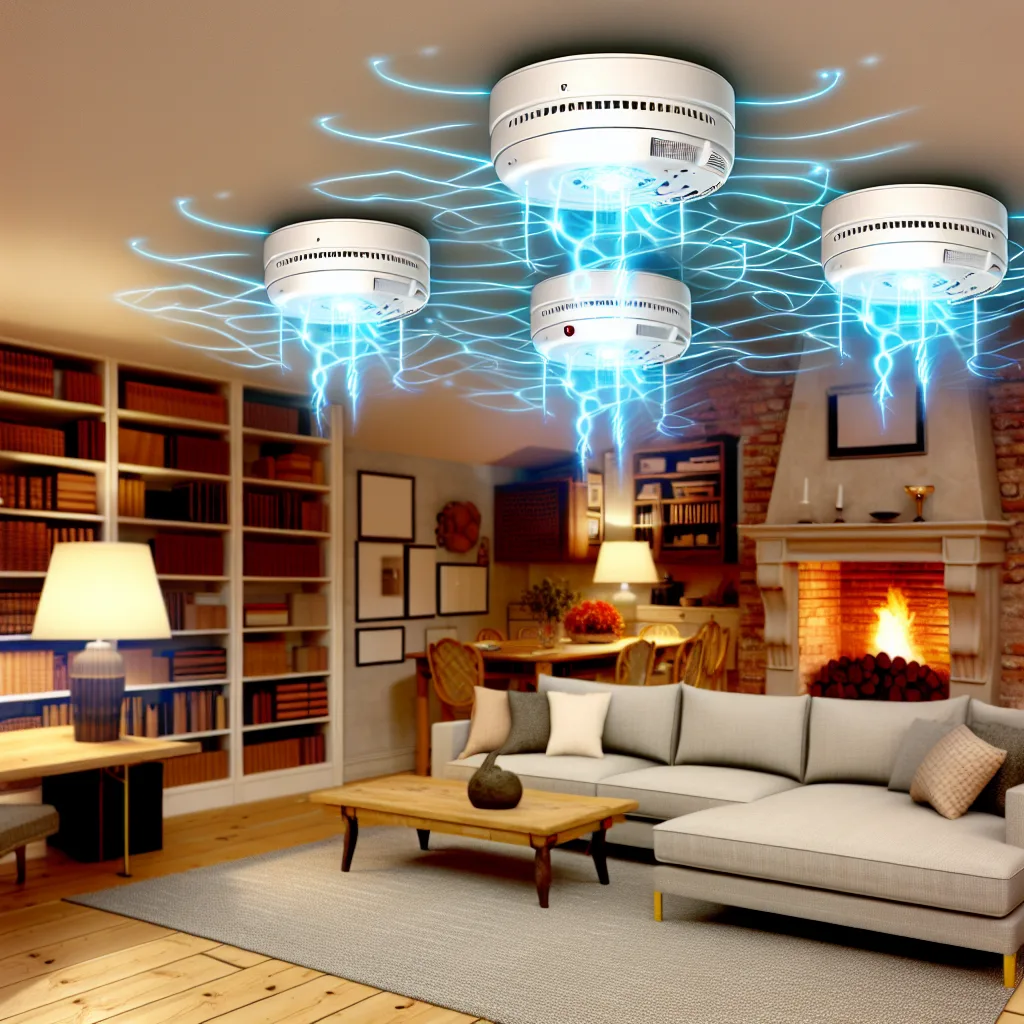Exploring the options for integrating hardwired smoke alarms with Z-Wave technology
If you’re like me and have a fully hardwired smoke alarm setup in your home, you might be wondering if it’s possible to add smart features without sacrificing the reliability of your existing wiring. Specifically, you might be asking: are there hardwired Z-Wave smoke alarms that can alert me exactly which alarm is beeping? This is a question I’ve heard from many homeowners wanting both dependable wiring and smart home integration.
What Are Hardwired Z-Wave Smoke Alarms?
Hardwired Z-Wave smoke alarms are smoke detectors powered by your home’s electrical wiring but equipped with Z-Wave technology to connect wirelessly with your smart home system. This means they can send alerts to your phone or smart hub, letting you know if there’s smoke, and importantly, which alarm is sounding.
The Current Landscape: Mostly Battery-Powered
From what I’ve found, most Z-Wave smoke alarms on the market are battery-powered rather than hardwired. Battery-powered units like the First Alert Z-Wave Smoke and Carbon Monoxide Alarm are popular because they’re easier to install and maintain. They communicate with your Z-Wave hub wirelessly but rely on batteries, which means you need to keep an eye on battery life.
Unfortunately, the options for smoke alarms that are both hardwired and Z-Wave compatible are quite limited. Many manufacturers offer hardwired alarms with interconnect features (where an alarm triggers others in the home) but without smart home integration. The good news is there are some workaround approaches.
Workaround Options to Consider
- Z-Wave Modules or Relays with Hardwired Alarms:
For homes with existing hardwired alarms, adding a Z-Wave module or relay that detects when an alarm is triggered might work. These modules can send a signal to your smart home system. However, it might not be straightforward to identify which specific alarm is sounding without additional sensors or wiring. - Smart Smoke Detectors with AC Power Options:
A few newer smart alarms support being powered by AC adapters but may require some technical know-how to install alongside your current wiring. -
Hybrid Systems:
Some people use a mix of hardwired alarms in critical areas and battery-powered smart alarms in others. This can offer a balance, letting you keep the reliability of your wired system while gaining smart alerts where it matters most.
Why Bother with Hardwired Z-Wave Smoke Alarms?
Hardwired smoke alarms are generally more reliable because they have a constant power source and interconnected wiring. Adding Z-Wave connectivity means you don’t have to rely solely on local beeps to know there’s a fire—your phone or smart speaker can alert you no matter where you are.
If you want to see what’s available, you might check manufacturers’ websites like First Alert or explore smart home hubs like SmartThings, which support a wide range of Z-Wave devices.
Final Thoughts
While fully integrated hardwired Z-Wave smoke alarms are rare, the technology is evolving. For now, consider your priorities: reliability of hardwiring versus flexibility and easy installation of battery-powered smart alarms. Combining the two might be the best way to get peace of mind.
Stay safe, and if you go down this path, I’d love to hear what solutions worked for you!
